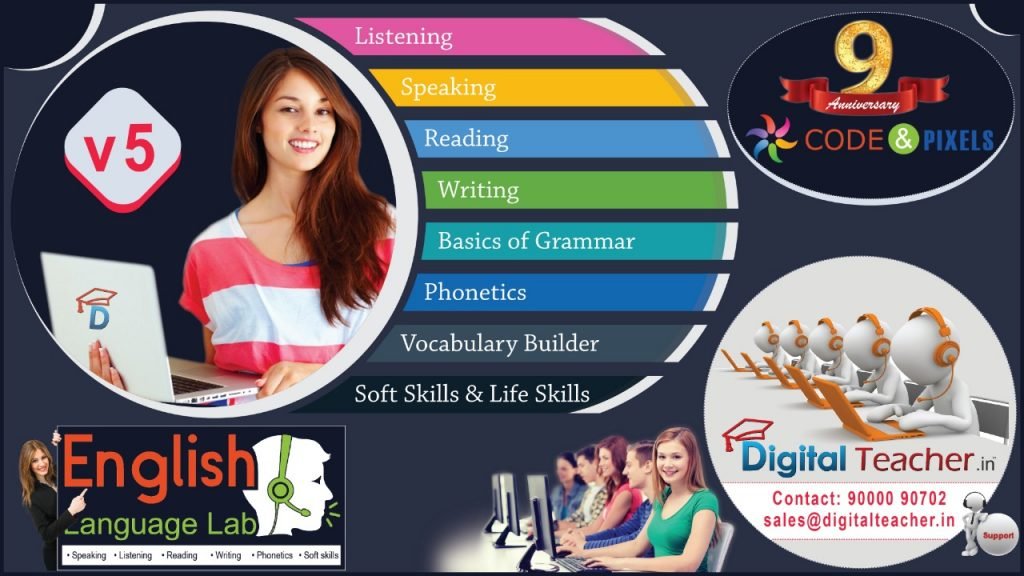Digital Language Lab / English Language Lab Technical Specifications

- The software should be capable of being installed on desktops, laptops, and in any windows based operating systems
- Language lab should be developed as per CEFR refereed standards i.e. syllabus should be divided as per A1, A2, B1, B2, C1, C2 standards
- The content should focus on building all four language skills namely, LSRW.
- The content should have activities, exercises, and should be loaded with audio-video samples.
- The main purpose of the Language lab is for self-practice for students, hence user interface should be easy to navigate and does not require any Teacher or facilitator to guide or monitor the student in the learning process
- There should not be any limitations. Students should be able to go through the module unlimited time till he/she gets proficient in the topic
- After completion of every Course, an assessment/Quiz should be available for the student to check their knowledge levels
- Students should be able to record and download the voice unlimitedly
- Software should not require high configuration machines. Even normal PCs and Laptops should be able to handle the software without any issue.
- Graphic-rich content to be used to explain concepts to students
- Indian neutral /accent-free voice should be used in the Language lab
- All levels and backgrounds of students i.e. rural students should also use easily and effectively
- Should Provide equal weightage on LSRW
- Basics of grammar must be covered in brief
- Special activities to overcome Mother Tongue Influence (MTI). A focus on ‘Mother Tongue Influence (MTI) to overcome pronunciation differences of consonant sounds using mouth movements.
Detailed coverage on phonetics :
- Reading – covers all aspects of grammar in usage
- Writing – covers all discourses for CBSE and SSC
- Editing – explores grammatical accuracy
- Listening – provides exposure to a variety of text
- Assessments
- Well-graded content
- Situational Approach
- Well-guided practice activities
- Learner-centered activity
- Academic vocabulary
- ELL (English Language Lab) should have 5000+ words (8 levels) with picture representation which helps the students in learning new words.
- prerecorded Lessons should be made available to students by experts with good quality graphics
- Students should listen to and repeat after model track to practice common everyday situations and conversations& dialogues while their voices are recorded

Language lab should focus on :
- Fluency: To improve fluency Audio/Visual applications based on stress, intonation and modulation are practiced.
- Speech sounds: Pronunciation of consonants and vowel sounds made easy with correct syllabic division and stress patterns.
- Intonation: Improving the knowledge of English by mastering variations in volume, pitch, speed, and stress.
- 3000+ difficult words to recite for better pronunciation.
- Phonetics: The accent of different words is made easy through phonetics.
- Modulation: Modulation helps to achieve precision in pronunciation.
- Pronunciation, Syllabic division: Almost 3000+ syllabic words are used from Monosyllabic to Hexa syllabic
Related Articles:
- Best English Language Lab Software
- How to use Digital Language Lab?
- What is English Language Laboratory?
- Types of Communication Skills Lab
- Making English Language Learning Easy
- Learn LSRW Skills Easily
- Tips to Improve Spoken English
- Why Language Laboratory Software?
- Role of English Language in India
- Language Lab Software for Schools, Colleges
- Language Laboratory Software: Benefits and Uses
- Language Lab Software: Offline or Online, Which is Better?
